A ray of light incident normally on an isosceles right angled prism travels as shown in the figure. The least value of the refractive index of the prism must be
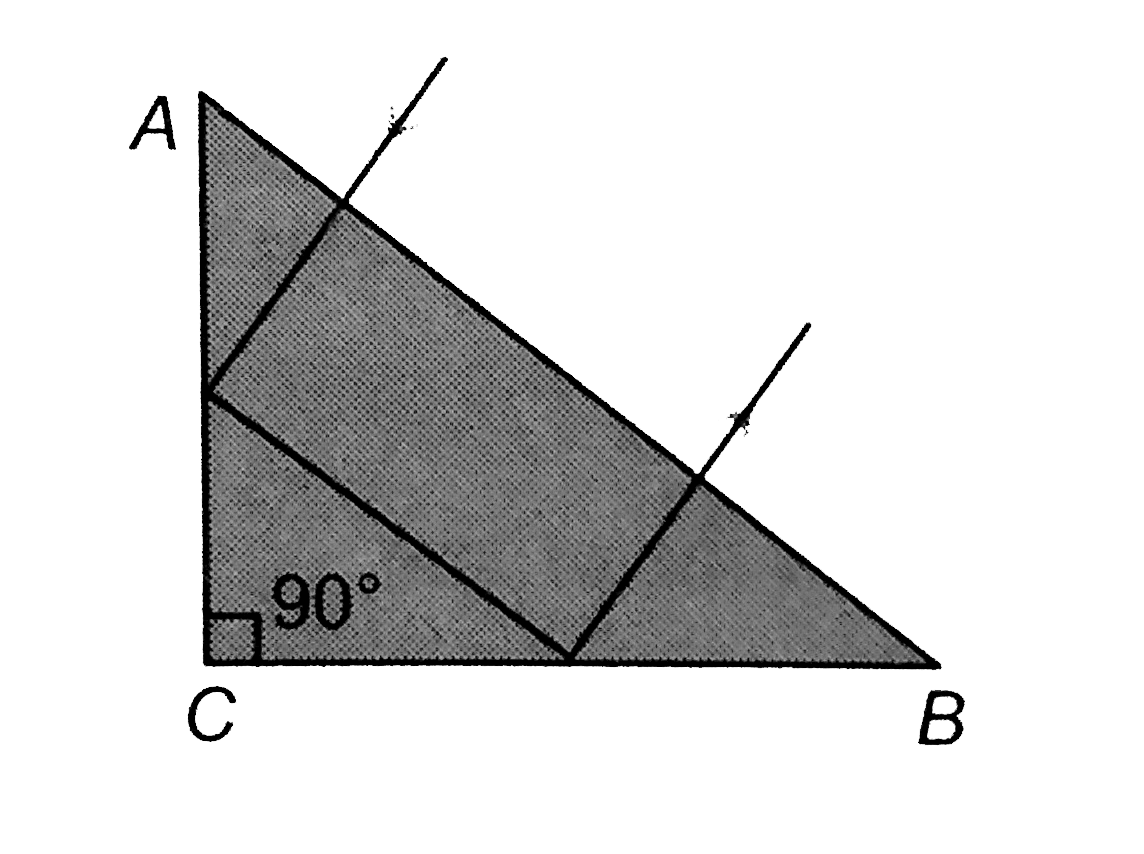
√2
√3
1.5
2
The correct Answer is:A
45∘>ic
⇒sin45∘>sinic⇒1√2>1n⇒n>√2
nleast=√2.
Topper's Solved these Questions
- BOOK - ERRORLESSCHAPTER - RAY OPTICSEXERCISE - NCERT BASED QUESTIONS ( Human Eye and Lens Camera )15videos
RAY OPTICS
- BOOK - ERRORLESSCHAPTER - RAY OPTICSEXERCISE - NCERT BASED QUESTIONS ( Microscope and Telescope)34videos
RAY OPTICS
- BOOK - ERRORLESSCHAPTER - RAY OPTICSEXERCISE - NCERT BASED QUESTIONS ( Refraction at Curved surface )61videos
RAY OPTICS
- BOOK - ERRORLESSCHAPTER - MAGNETISMEXERCISE - Assertion and Reason22videos
MAGNETISM
- BOOK - ERRORLESSCHAPTER - WAVE OPTICS AND ELECTROMAGNETIC THEORYEXERCISE - ASSERTION & REASON27videos
WAVE OPTICS AND ELECTROMAGNETIC THEORY
Similar Questions
A ray of light is incident horizontally on the face AB of the.right angled prism as shown in the figure. If the ray emerges grazing the surface AC, find the value of ϕ. Refractive index of the material of the prism is given to be n.
 View Solution
View Solution(a) Draw the ray diagram showing refraction of ray of light through a glass prism. Derive the expression for the refractive index n of the material of prism in terms of the angle A ray angle of minimum deviation δm
(b) A ray of light PQ enters an isosceles right angles prism ABC of refractive index 1.5 as shown in figure .
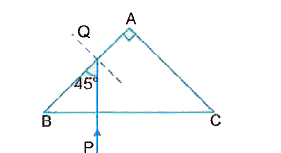
(i) Trace the path of the ray through the prism .
(ii) What will be the effect on the path of the ray if refractive index of the prism is 1.4 ?View Solution
Knowledge Check
- Question 1 - Select One
A ray of light is incident normally on one face of a right-angled isosceles prism and then it grazes the hypotenuse. The refractive index of the material of the prism is
A1.33B1.414C1.5D1.732 - Question 2 - Select One or More
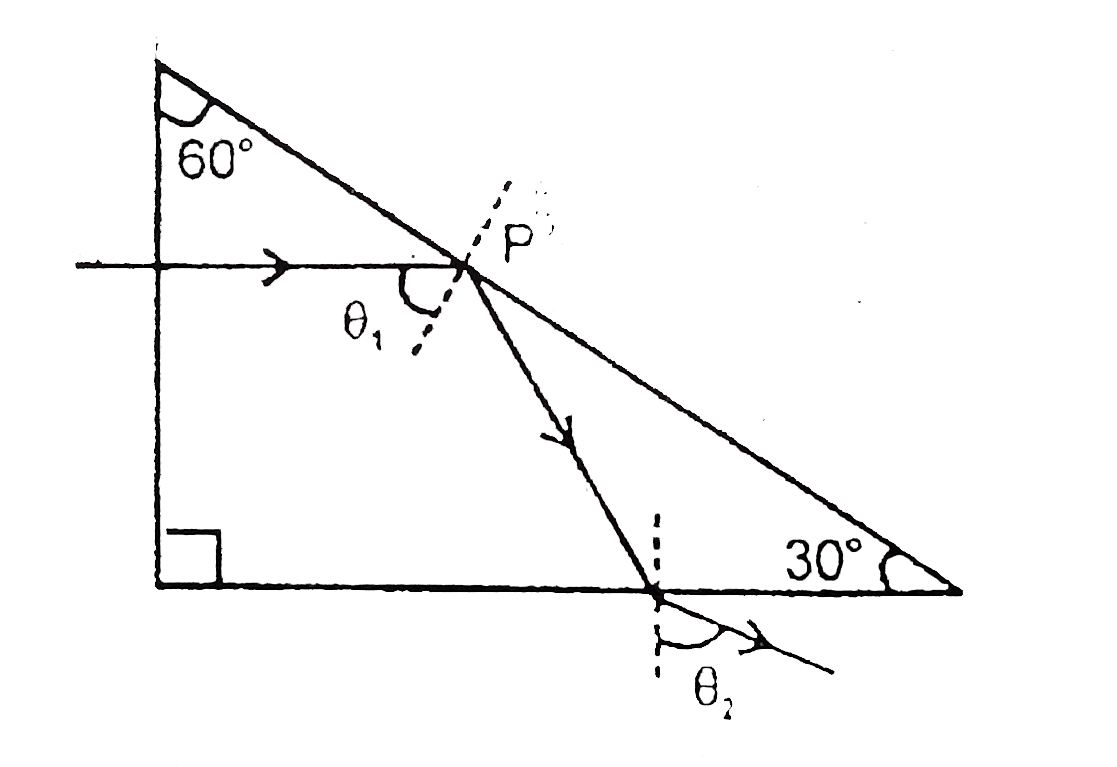
A ray of light is incident normally on one face of a prism as shown in figure. The refractive index of the material of the prism is 53 and the prism is immersed in water of refractive index 43, thenAThe angle of emergence θ2 of the ray is sin−2(58)BThe angle of emergence θ2 of the ray is sin−1(54√3)CThe angle of emerrgence θ2 of the ray is sin−1(73√4)DTotal internal reflection will not occur at P if the refractive index of water increases to a value greater than 52√3 by dissolving some substance. - Question 3 - Select One
A ray of light is incident normally on the prism (μ=32) immersed in a liquid as shown in the figure. The largest value for the angle α so that ray is totally reflected at the face AC is 30∘. The refractive index of the given liquid is
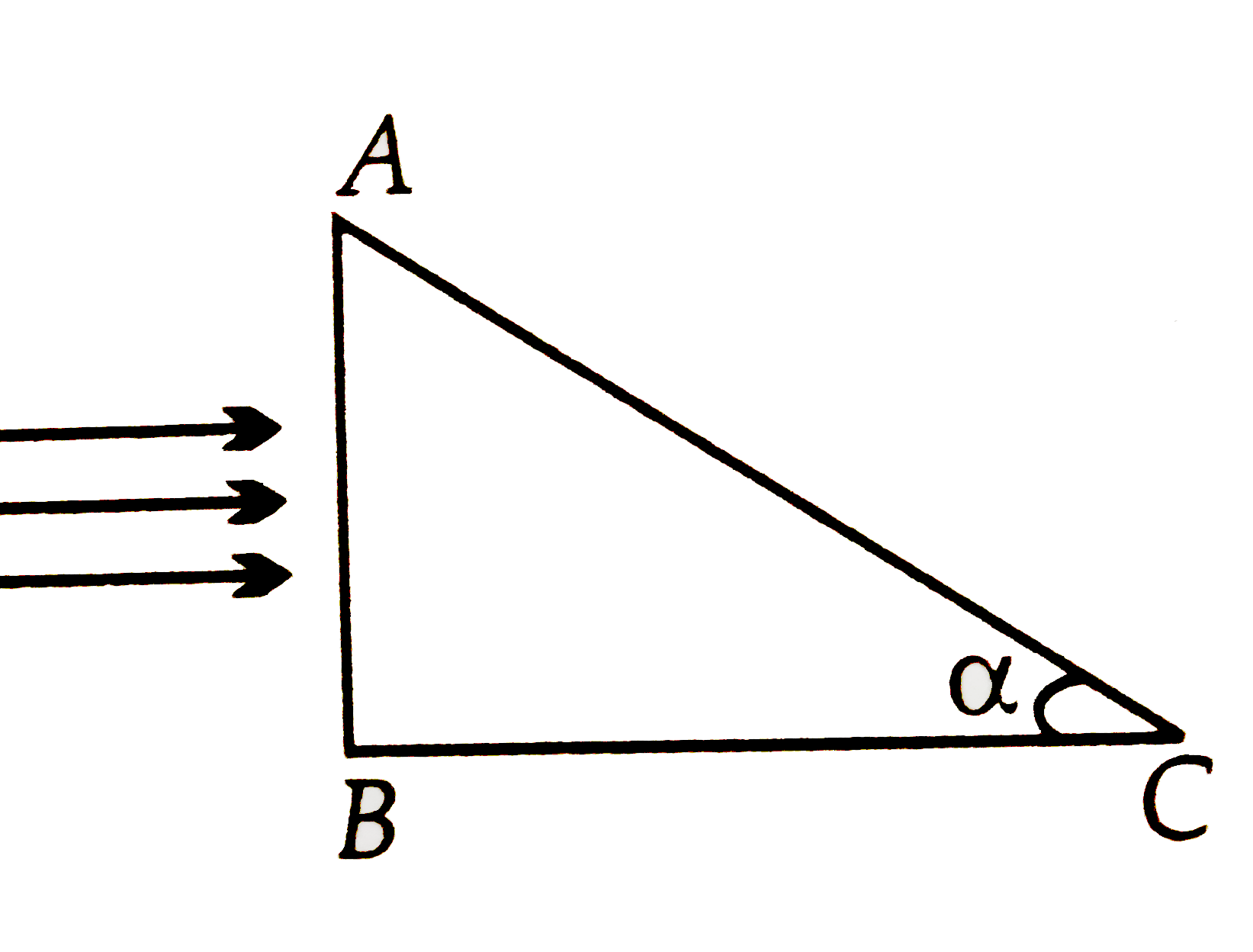 A√32B34C43D3√34
A√32B34C43D3√34
A ray of light incident normally on the first face of a glass prism of refractive index 1.6 just emerges from the other face. Find the angle of the prism.
View SolutionA ray of light passes through a right angled prism as shown in the figure. State the angle of incidence at the faces AC and BC.
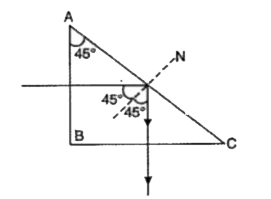 View Solution
View SolutionA ray of light incident normally on one of the faces of a right-angle isosceles prism is found to be totally reflected as shown in the figure. What is the minimum value of the refractive index of the material of the prism? When the prism is immersed in water, trace the path of the emergent ray for the same incident ray, indicating the values of all the angles (μω=4/3).
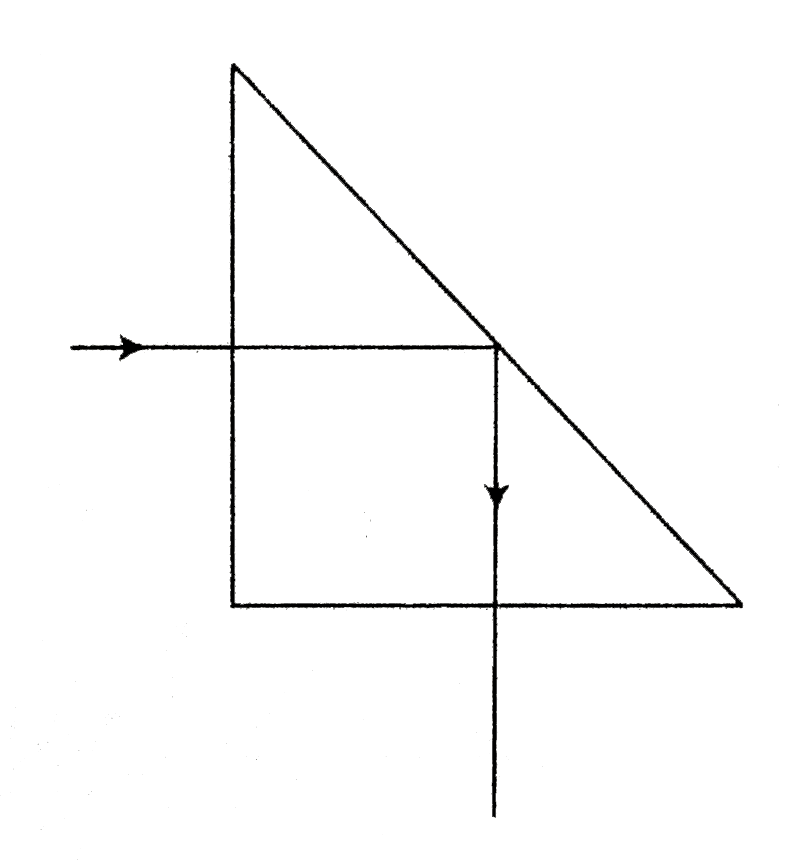 View Solution
View SolutionA ray falls on a prismABC(AB=BC)and travels as shown in adjoining figure.The minimum refraction index of the prism material should be -
View SolutionA ray of light is incident on the hypotenuse of a right-angled prism after travelling parallel to the base inside the prism. If μ is the refractive index of the material of the prism, the maximum value of the base angle for which light is totally reflected from the hypotenuse is
View Solution
